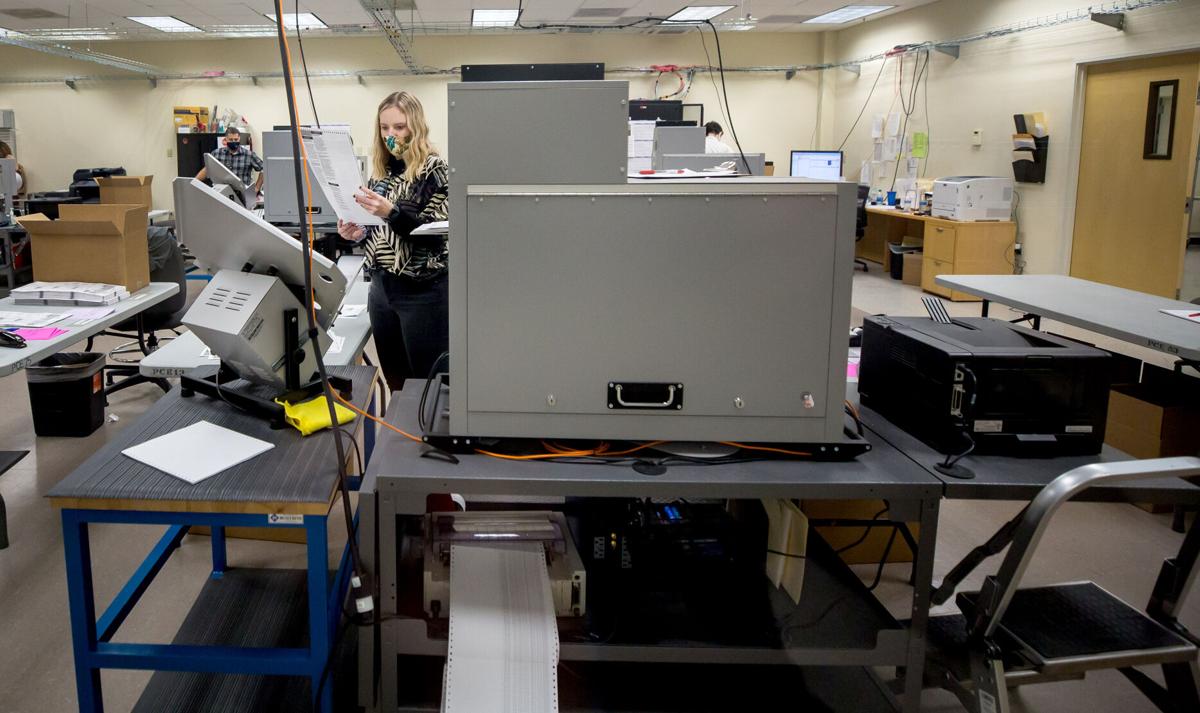PHOENIX — Has your signature changed over the years? Is it different when you’re not feeling well? Variations to your signature on a ballot could result in a call from investigators and possibly a criminal probe, under proposed legislation.
But while that measure awaits a final roll-call vote, lawmakers on Wednesday defeated a more far-reaching proposal that would have required Arizonans to provide more information to get their early votes counted.
Here’s the latest on both:
Signed ballots
The bill on signatures, being pushed by Rep. John Kavanagh, R-Fountain Hills, would alter state laws on early ballots.
Those statutes now say that when a ballot comes in by mail, election workers compare the signature on the envelope with what they have on file, whether from prior elections or other records. If they appear to match, that’s the end of it and the ballot is tallied.
If they don’t match, election workers attempt to contact voters to find out if they actually cast the ballot and any reasons why the signature has changed, with the most common reasons including age or illness. An affirmative response from the voter “cures” the ballot and ends the process. Otherwise the ballot is not counted.
Kavanagh’s provision in Senate Bill 1241 would require all unmatched signatures and “uncured’’ ballots be referred to state or county attorneys who then would launch their own investigation.
“We’re just having somebody else follow up with a check in the event that the elections people have no way of contacting this person,’’ he said.
That alarmed Rep. Athena Salman, D-Tempe, who said it would have a “chilling effect’’ on the disabled and the elderly, the people whose signatures on the ballot envelopes are most likely to have changed.
Kavanagh, however, said that doesn’t automatically mean a criminal probe.
“If they also can’t contact them, then it goes nowhere,’’ he said. “If they suddenly discover, though, that the individual, say, doesn’t live at that address anymore, then maybe they’re going to want to take the original ballot and iodine-fume it for prints and see who was handling it.’’
Kavanagh insisted that individuals who ignore an inquiry will not end up being investigated. “The case is dropped,’’ he said. “You can’t open a criminal probe when you have no evidence and you can’t even find the person.’’
The proposal has cleared the Senate, been tentatively approved by the House and is set for a final roll-call vote.
Voter info
Meanwhile, on a 31-29 margin Wednesday, the House rejected a Senate-passed measure that would have added identification requirements for mail-in ballots.
Republicans Michelle Udall of Mesa and Joel John of Arlington joined with the Democrats to quash the measure.
The vote drew an angry reaction from Rep. Leo Biasiucci, R-Lake Havasu City.
“In places like Afghanistan to vote, they require a biometric technology, retinal scans and your fingerprint on each ballot,’’ he said. “So the fact we’re voting ‘no’ on a simple ask to put your birthdate is quite mind boggling.’’
But the foes said it’s more complex than that.
Under current law the only thing required on an early ballot envelope is a signature.
Senate Bill 1713 sought to add a new requirement that those voting early fill out and submit with their early ballot an affidavit that includes their date of birth and then either their driver’s license number, non-operating state ID number or the last four digits of their Social Security number.
That proposal by Sen. J.D. Mesnard, R-Chandler, came on the heels of historic turnout and record early voting in the 2020 election.
“There is some feeling that signature verification, while a good thing, is not enough to establish a level of confidence that I think we need,’’ Mesnard said when he pushed the measure through the Senate.
It also followed highly publicized claims by former President Donald Trump before and after the last election that early voting leads to widespread fraud.
Trump lost Arizona to Joe Biden by 10,457 votes. Arizona should not be changing laws because of “the fact that he didn’t like the outcome of the election,’’ said Rep. Raquel Terán, D-Phoenix
“It will disenfranchise voters,’’ said Rep. Kelli Butler, D-Paradise Valley. Rep. Richard Andrade, D-Glendale, called it “just another form of voter suppression.’’
Kavanagh said the additional requirements wouldn’t present a hurdle.
“Everybody knows their date of birth, so I don’t see how there could be a problem here,’’ he said. And for those who don’t have or don’t know their driver’s license number, they could use the last four digits of the Social Security number “which everybody has since childhood.’’
But Rep. Jasmine Blackwater-Nygren, D-Red Mesa, said her grandmother, for instance, was not born in a hospital and has no birth certificate. Her driver’s license lists Nov. 15, an arbitrary date only because the family says she was born in the fall. By contrast, she is listed as born on Nov. 17 on her Indian Health System documents and Nov. 16 on her Social Security card.
Many Native Americans are unaware of their Social Security number because the ID they need on reservation is their tribal identification card, said Rep. Jennifer Jermaine, D-Chandler. Yet that is not one of the permissible pieces of information that could be included to verify a ballot.
“Democracy will be killed by thousands of cuts,’’ said Rep. Lorenzo Sierra, D-Cashion. “This (bill) is one of those cuts.’’





